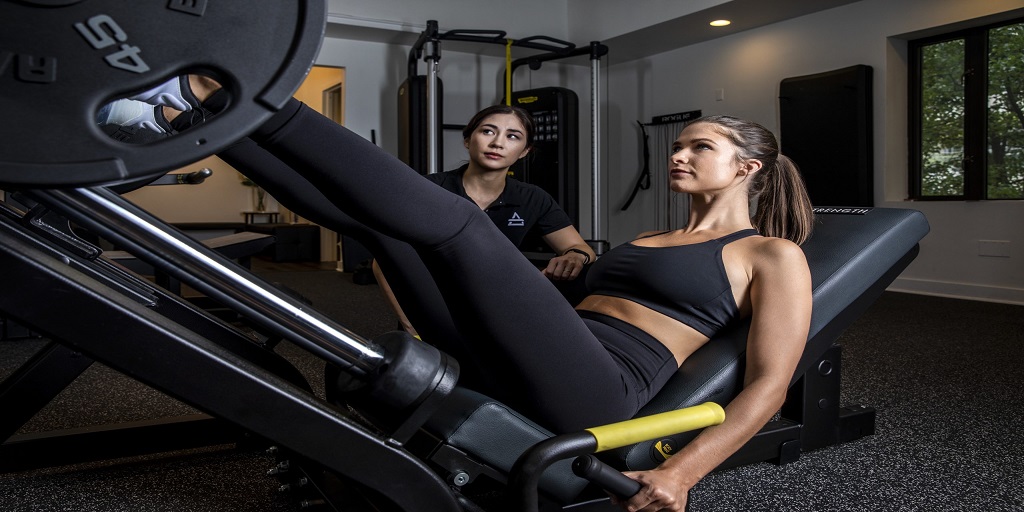We all start somewhere different in our fitness journey, and one of the most overlooked factors that can impact your training results is your body type.
While the science of somatotypes (ectomorph, mesomorph, and endomorph) has its critics—and rightfully so for being overly simplified—understanding the general traits associated with your build can provide valuable insights into finding proper fitness programs.
But let’s clear something up from the start: you’re not trapped by your body type. It’s not a fitness destiny—it’s just a starting point. What really determines your success is the right combination of training, nutrition, and consistency.
The Three Somatotypes: A Quick Overview
Here’s a quick breakdown of the classic body types:
- Ectomorph
Naturally thin, narrow shoulders and hips, fast metabolism, finds it hard to gain weight or muscle.
- Mesomorph
Naturally muscular and athletic, gains muscle easily, responds well to strength training.
- Endomorph
Heavier build, stores fat more easily, wider frame, finds fat loss more challenging.
Now, these are just blueprints—starting points. In reality, most people fall somewhere in between or show traits of more than one type.
How Body Type Impacts Training
So, how does knowing your body type influence the way you train? Let’s break it down with a realistic lens.
Ectomorph: The “Hardgainer”
If you’re an ectomorph, building muscle can feel like climbing Everest in flip-flops. You might eat like a bear and still look like you just walked out of a modeling agency. But here’s what usually happens: your lifestyle habits (fidgeting, high activity levels, poor appetite) play a big role in that.
Mesomorph: The “Natural”
Mesomorphs are the gym’s golden children. They put on muscle just by thinking about it. That said, they’re not bulletproof—overtraining and under-eating can derail progress fast.
Endomorph: The “Strong but Struggles”
Endomorphs have strength and mass on their side, but often struggle with shedding fat. Here, behaviors and eating patterns, not just genetics, often play a major role. You may store fat easily, but that also means you respond very well to strength training.
Why Fitness Programs Are the Key—Not Just Body Types
Here’s where the magic happens. Instead of pigeonholing yourself into a rigid training style based on your body type, use that knowledge as a launchpad for a personalized program. Good fitness programs do much more than guess your somatotype—they adjust based on:
- Your goals (fat loss, muscle gain, endurance)
- Your lifestyle (sleep, stress, work schedule)
- Your recovery ability (some people thrive on five workouts a week, others need more rest)
- Your real-world results (plateauing? It’s time to reassess and adapt)
Top-tier programs monitor your progress, performance, and patterns. If you’re not building muscle as an ectomorph, the program should increase volume and intensity gradually. If you’re not losing fat as an endomorph, it may shift focus to metabolic work and dietary tweaks.
It’s Not Just About Structure—It’s About Behavior
Body types are helpful for quick insight, but they’re not a map—they’re more like a weather report. They tell you the conditions, but not the path. What truly matters are your daily habits, commitment, and adaptability.
Take the ectomorph who struggles to gain muscle. It’s often not about bone structure—it’s because they’re eating 40 grams of protein, skipping meals, and playing basketball every night. Or the endomorph who can’t lose weight—likely not due to genetics alone, but because of poor dietary habits and inactivity.
Understanding your unique body helps—but the real results come from understanding your behaviors, tracking what works, and making intelligent adjustments.
In short, knowing your body type can help you start smart—but it’s the structure and flexibility of a well-designed fitness program that helps you finish strong. Whether you’re lean, muscular, or stocky, your path to your ideal fitness level starts with education, execution, and evolution.
For more information about Personal Trainer and Fitness Center Rittenhouse Square Please visit: The Summit Fit.
